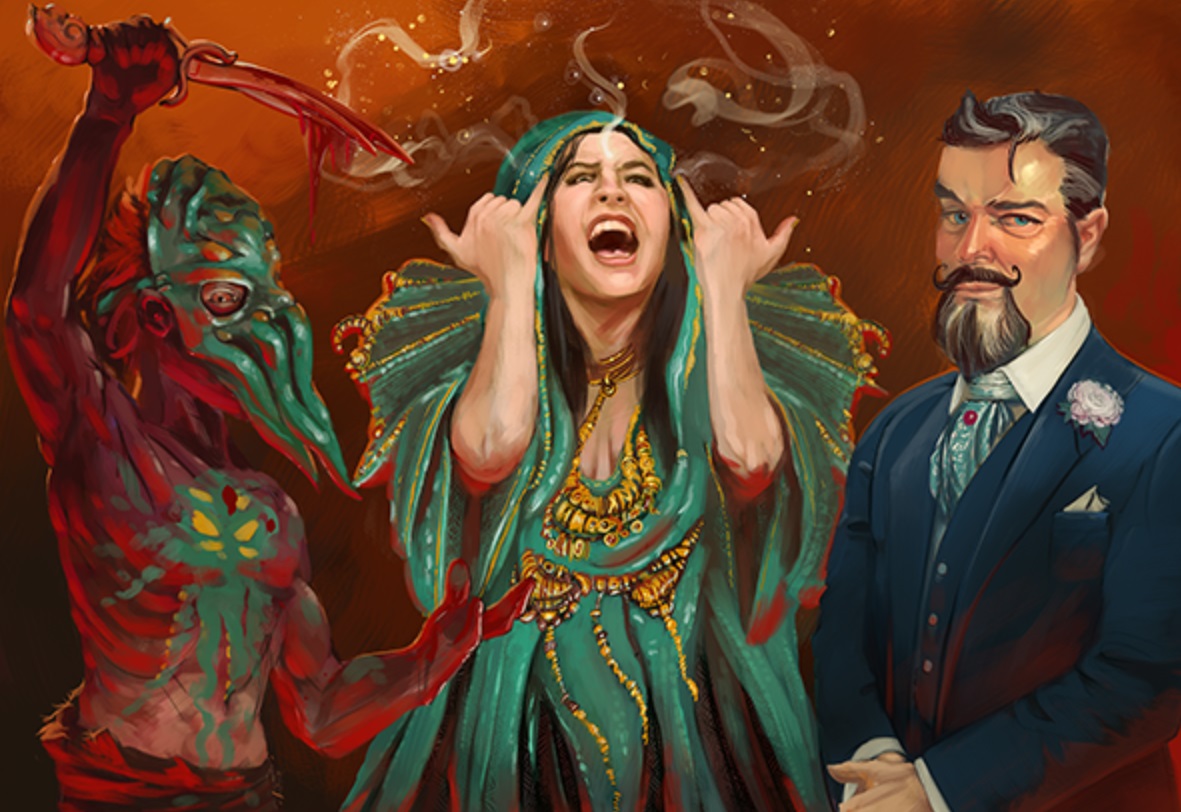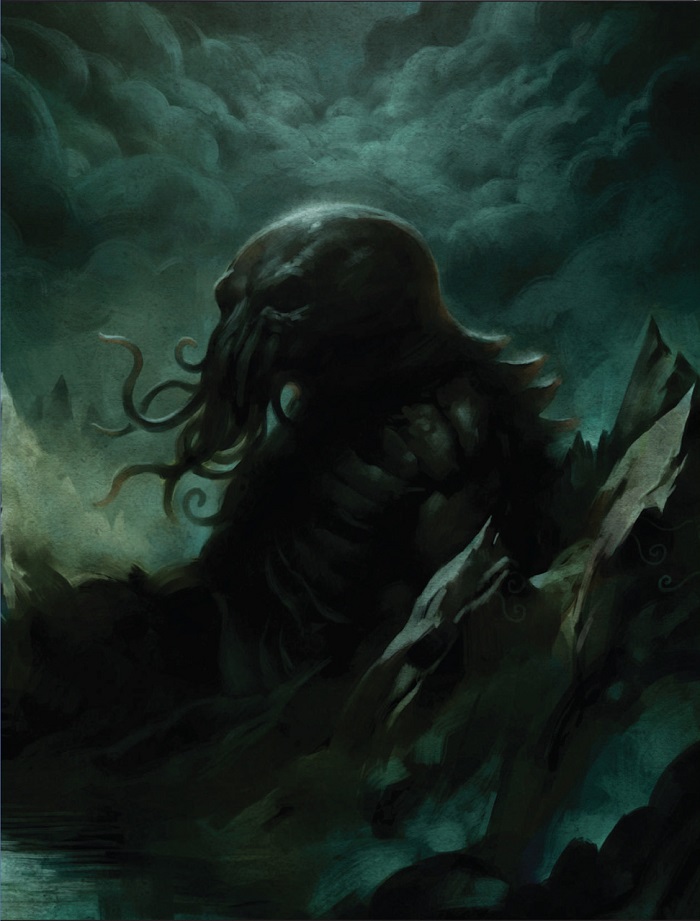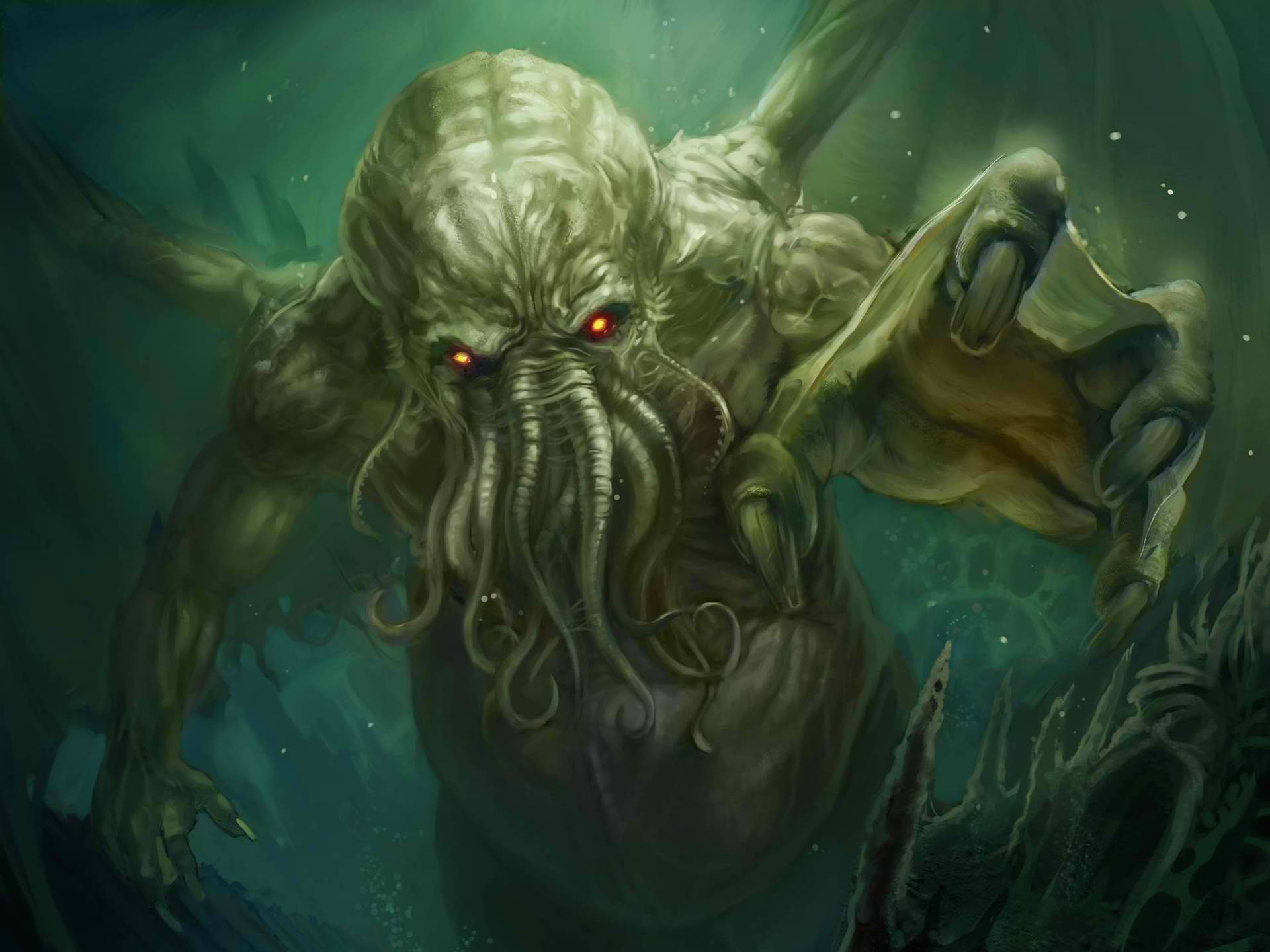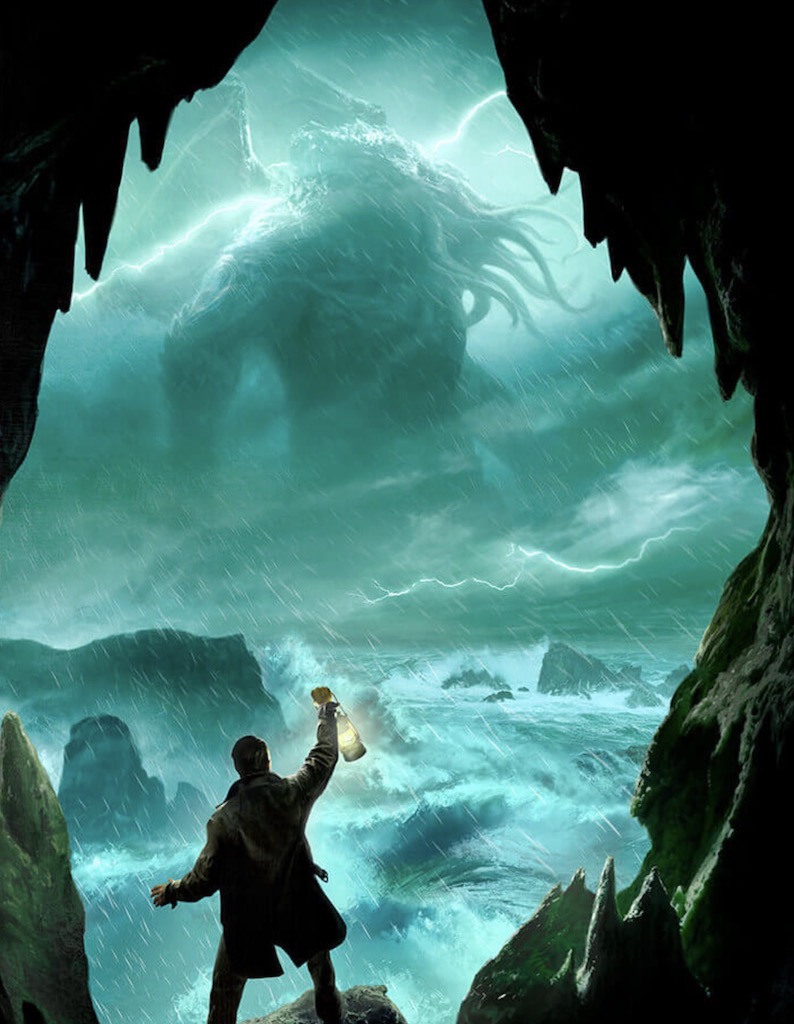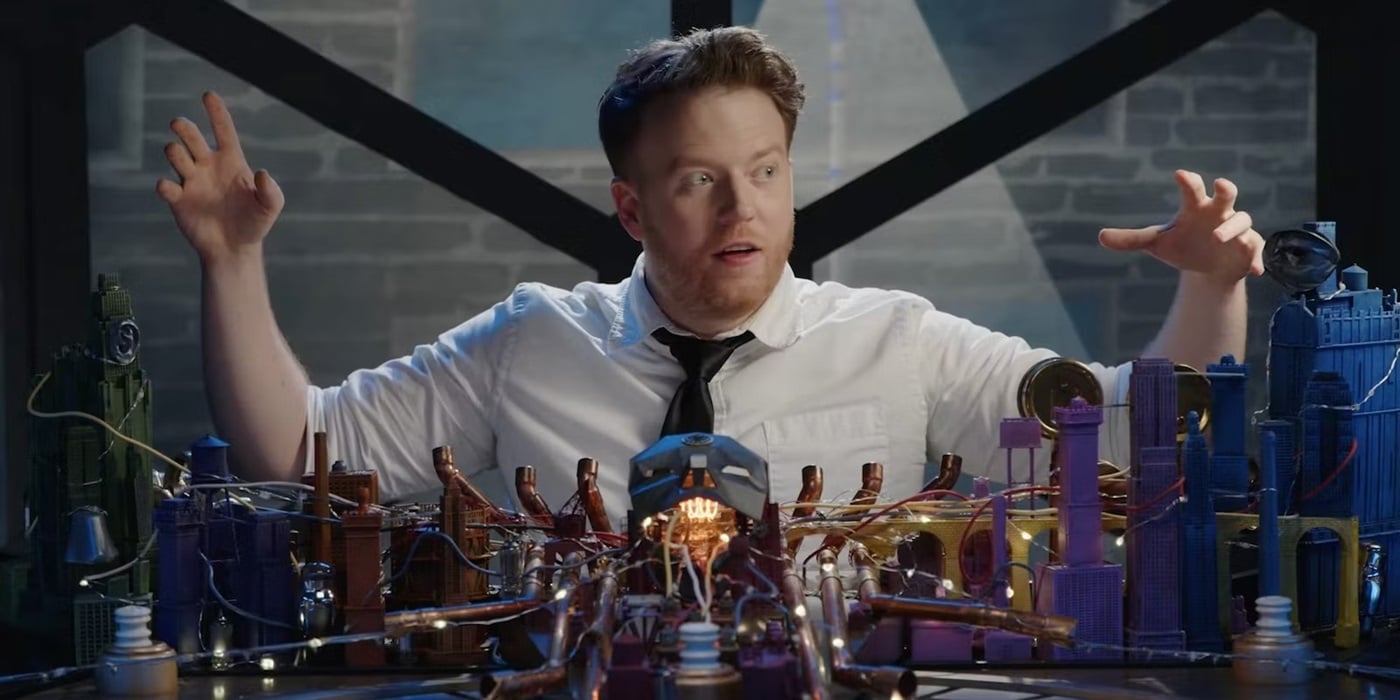The Cthulhu Breakdown: After a Long Slumber, Cosmic Terror Rises From the Sea
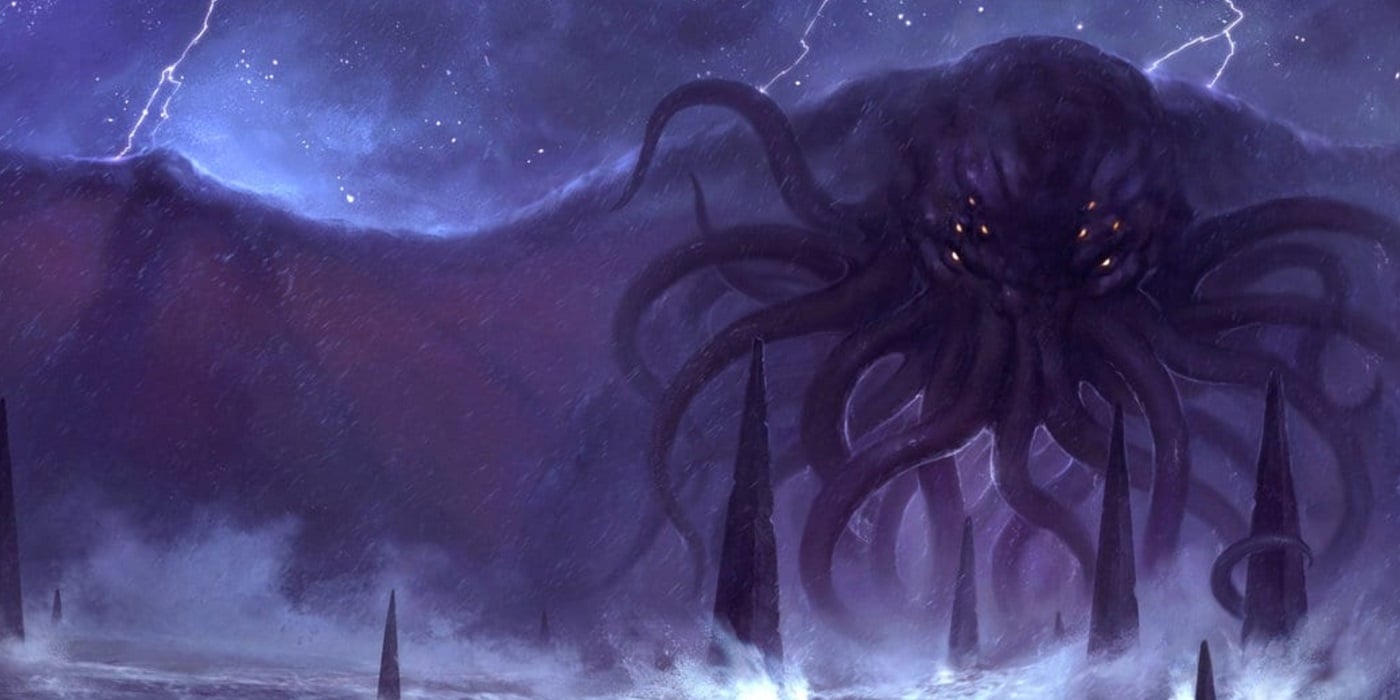

Created in 1928, the mythos of Cthulhu is still a relevant and wildly popular part of pop culture and horror to this day.
Created by H.P. Lovecraft in 1928, Cthulhu has been a major player in the horror genre for decades. Even when Cthulhu doesn’t show up, his influence is immediately recognizable. But who is Cthulhu? How did he come about?
And why do we still reference his stories nearly a hundred years later?
Call of Cthulhu & the Creation of a Horror Icon
Published in February 1928, The Call of Cthulhu is a short story by American Horror writer H.P. Lovecraft. It was inspired in part by a dream that Lovecraft had a few years earlier. The story takes place over three parts or chapters, each seeming disconnected from the previous parts.
The basic premise is that a character named Thurston finds a bas-relief depicting Cthulhu among his great-uncle’s possessions. We learned that it was made by an artist in a dream-like state. Around the same time, many other artists were experiencing the same phenomenon. It’s learned that at some point before it came into the great-uncle’s possession, it had been seized by police from members of a cult in New Orleans.
In part two, police inspector John Legrasse investigates a local “archaeological society” with some blasphemy and Cthulhu-worshiping tendencies. Members are described as insane and claim Cthulhu’s return is imminent.
In the final part, we meet Johansen. Johansen is a sailor on a Norwegian ship who landed on the uncharted island of R’lyeh. Upon exploration, they discovered a giant door that Cthulhu emerged from. This instantly killed many of the sailors, with others dying of fright or going mad shortly after. Only Johansen successfully fled and survived before R’lyeh sunk back beneath the waves.
“Ph’nglui mglw’nafh Cthulhu R’lyeh wgah’nagl fhtagn” (“In his house at R’lyeh, dead Cthulhu waits dreaming”)
Advertisement– The Chant of Cthluhu’s Worshipers
Since then, Cthulhu has shown up in everything from eldritch horror stories to pop culture jokes and Easter eggs. And with his gigantic size and his appearance of an octopus with a bit of a dragon, he is unmistakable.
READ MORE: “Please Do Not Resist This K2S0 Breakdown”
Cthulhu Mythos
Cthulhu is one of a number of “cosmic horrors.” This pantheon of ancient and powerful deities from space once ruled Earth and has since fallen into a death-like slumber. Also known as the “Great Old Ones,” they now reside hidden in various locations around the world, waiting to one day rise again.
There are many Great Old Ones, each as terrifying as Cthulhu in their own right. These include Basatan, of Master of the Crabs, Gobogeg of At the Mountains of Madness, and Nyogtha of The Salem Horror.
Many of the Great Old Ones have their own dedicated cults and worshipers. Members see these ancient gods as a source of secrets and truth. In many cases, they have the ultimate goal of seeing them awaken and rise to power once more.
The fictional school of Miskatonic University, located in the equally fictional city of Arkham, conducts much of the study of the Great Old Ones. Lovecraft placed Arkham somewhere in the very real Essex County, Massachusetts. While the location of Arkham is purposefully vague, Essex County is home to the historically spooky city of Salem, MA.
What is Cthulhu, Exactly?
Each of the Great Old Ones is, by definition, almost impossible for a mortal mind to describe or conceive of. He is usually depicted with a mountainous dragon-esque body, rubbery skin, and a face covered in octopus-like tentacles.
As one of the Elder Gods, Cthulhu is a cosmic being of untold evil. His long slumber underwater leads to him often being described as a water elemental.
In truth, both within and outside of the context of the Cthulhu mythos, it is nearly impossible to know much about him. Those who perceive too much of the Great Old Ones begin to lose their sense of self. The characters’ likely warped sense of reality can make their stories difficult to believe.
And that is one of the things that make eldritch horror so unique and scary–it’s impossible to know anything for sure, even when the narrator says it.
How is “Cthulhu” Pronounced?
Lovecraft wrote once that Cthullhu was supposed to be said as “Khlûl′-hloo” and would go on to explain, “the first syllable pronounced gutturally and very thickly. The ‘u’ is about like that in ‘full’, and the first syllable is not unlike ‘klul’ in sound, hence the ‘h’ represents the guttural thickness.” But, his description of the sound varied from time to time.
He also noted, however, that this was simply the closest our human mouths could ever come to pronouncing “Cthulhu” and that the actual pronunciation was alien and impossible.
Most commonly, though, people refer to this particular Elder God as kuh-thoo-loo.
Is Cthulhu Real?
No. Well, I certainly hope not.
Who Owns the Cthulhu Mythos Now?
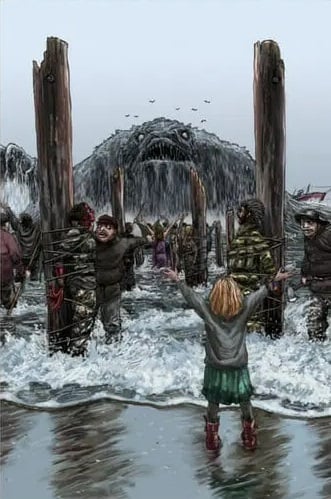
It’s hard to speak about Cthulhu and his creator this much without acknowledging Lovecraft’s long history of racism. Reading these works, even through the lens of understanding that they are nearly a hundred years old, can be uncomfortable for modern readers. And while I won’t tell you what he chose to name his pet cat, I’ll wait a moment while you google it for yourself.
This history has made people who are otherwise fans of the genre and monsters he created feel uneasy. And in turn, many aspects of the Lovecraftian mythos have fallen out of favor.
After his death in 1937, Lovecraft’s estate and works were inherited by his only surviving heir, Annie Gamwell. It was passed on to her descendants after that. But by this point, all of H.P. Lovecraft’s works, creations, and characters have fallen into to the public domain.
In other words, nobody owns Cthulhu or any of his other Elder Gods or short stories. And as a result, everything from books and comics to shows and movies, to tabletop RPGs have been able to use the mythos and monsters in a way that turns much of the uncomfortable history on its ear or even subverts it.
Try not to wake Cthulhu, adventurers!

